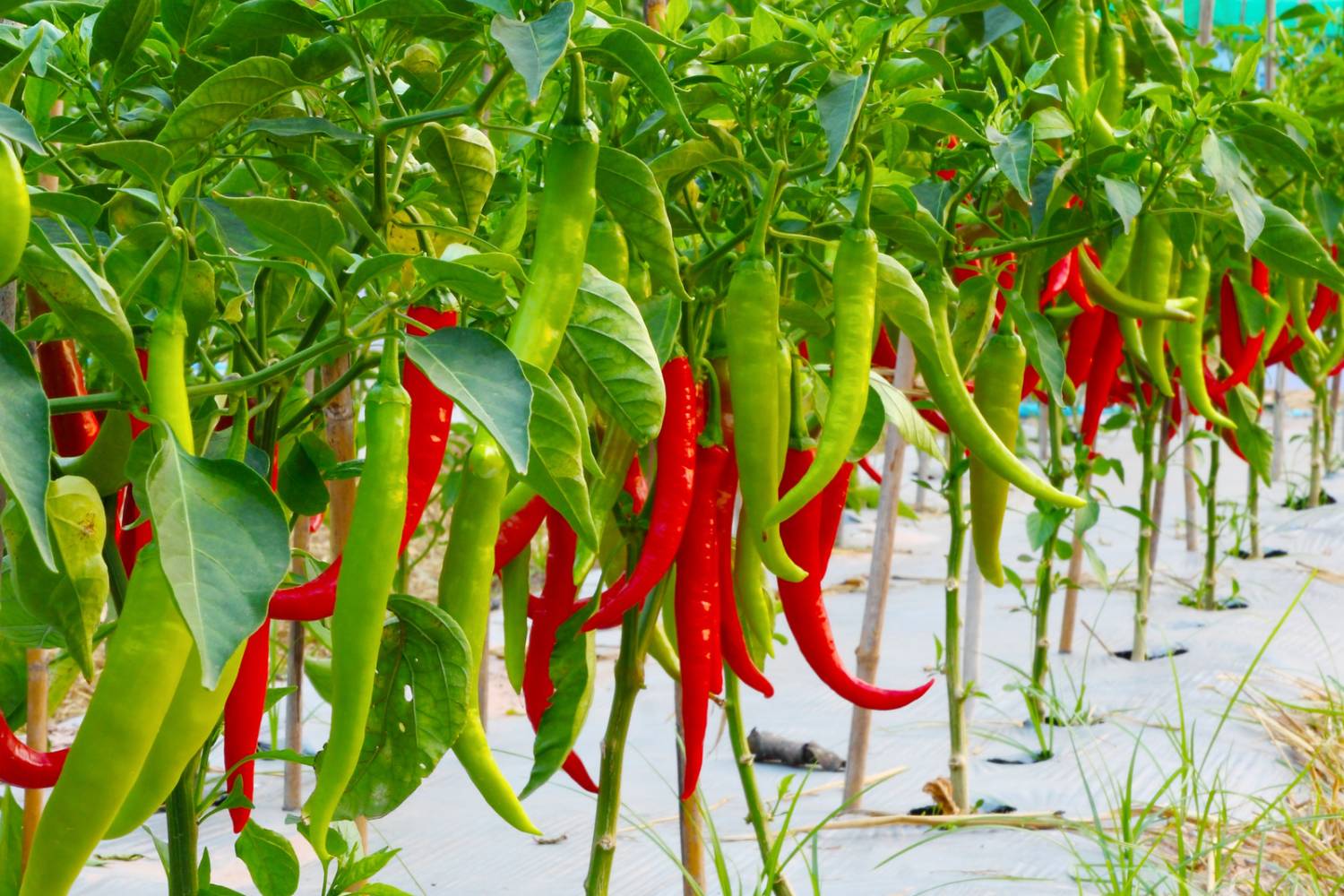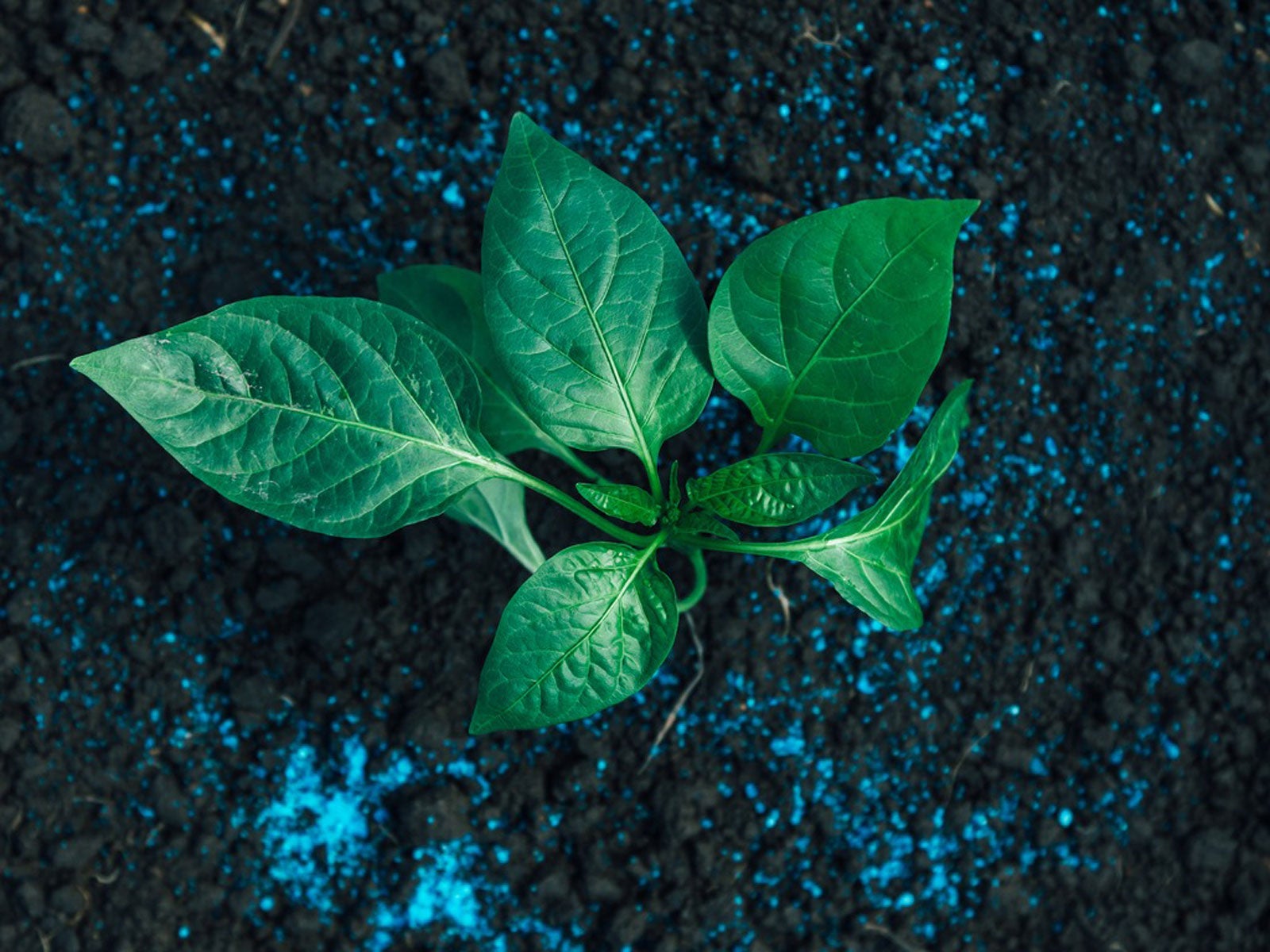Organic Vs. Synthetic Fertilizers: Which Is Best for Nurturing Healthy Pepper Plants?
In the realm of nurturing healthy pepper plants, the choice between organic and synthetic fertilizers stands as an essential choice with far-ranging effects. While both choices objective to give vital nutrients to support plant growth, the subtleties of their influence on the soil, plant wellness, and the environment stimulate a discussion that echoes throughout the horticulture neighborhood. Recognizing the unique advantages and prospective mistakes of each fertilizer kind is critical for pepper farmers looking for to maximize their returns while preserving an eco-conscious and sustainable approach.
Benefits of Organic Plant Foods
Organic fertilizers provide a sustainable and environmentally-friendly strategy to beneficial pepper plants, supplying vital nutrients without using artificial chemicals. These all-natural plant foods are originated from natural sources such as compost, manure, bone dish, and algae, promoting soil health and wellness and biodiversity. Unlike artificial plant foods, natural choices release nutrients gradually, making certain a balanced and stable supply for pepper plants to flourish.
One significant advantage of organic fertilizers is their capability to improve dirt framework and water retention. By boosting dirt health and wellness, organic plant foods advertise valuable microbial task, which helps in nutrient uptake by pepper plants. Additionally, organic plant foods decrease the risk of chemical run-off, protecting water sources from air pollution and protecting the environment.
Moreover, natural fertilizers contribute to lasting dirt fertility by advertising the growth of helpful dirt organisms. These microorganisms assist break down organic issue, launching nutrients in a form that is easily obtainable to pepper plants. best fertilizers for peppers. By promoting a healthy and balanced dirt environment, organic fertilizers support sustainable pepper farming techniques that profit both plants and the environment
Drawbacks of Synthetic Fertilizers
Artificial fertilizers, as opposed to their organic counterparts, posture various disadvantages when used to nurture pepper plants, impacting both plant wellness and ecological sustainability. One significant drawback of artificial fertilizers is their propensity to seep nutrients from the soil promptly. This quick leaching can bring about nutrient imbalances in the dirt, causing plants to experience poisonings or shortages. In addition, artificial plant foods can harm useful dirt organisms, such as earthworms and helpful microorganisms, disrupting the dirt ecosystem's balance.
In addition, the overuse of synthetic plant foods can add to water pollution. Excess fertilizers not taken in by plants can get rid of into water bodies, causing eutrophication, where algae blooms diminish oxygen levels in the water, harming water life. Furthermore, synthetic plant foods are typically obtained from non-renewable resources, such as fossil fuels, adding to carbon exhausts and environmental destruction throughout their manufacturing.
Nutrient Absorption Comparison
Effective nutrient absorption plays an important role in the total health and growth of pepper plants. When contrasting artificial and natural plant foods in regards to nutrient absorption, natural fertilizers have the benefit of giving an extra well balanced and slow-release resource of nutrients (best fertilizers for peppers). Organic plant foods include a range of macro and micronutrients that are not just advantageous for the plants however also advertise healthy dirt microbial task, which helps in nutrient uptake. On the other hand, synthetic fertilizers commonly give a quick launch of nutrients, which can result in leaching and overflow, causing reduced nutrient absorption rates by the plants.
Moreover, natural plant foods improve soil structure and water retention ability, allowing pepper plants to access nutrients extra effectively. This improved soil top quality facilitates origin development, making it possible click this site for much better nutrient absorption. Synthetic plant foods, although originally increasing plant growth because of their high nutrient focus, may impede long-term nutrient absorption by derogatory dirt wellness over time.
Environmental Impact Factors To Consider

On the various other hand, synthetic fertilizers, although often even more instantly available and concentrated to plants, can have harmful impacts on the atmosphere if not used properly (best fertilizers for peppers). Their manufacturing requires high power inputs, leading to greenhouse gas exhausts and adding to environment change. In addition, the runoff of excess artificial fertilizers can pollute water resources, bring about eutrophication and harming marine environments.
Finest Plant Food Practices for Peppers
When feeding pepper plants, maximizing nutrient uptake and reducing environmental effect are key factors to consider. To accomplish this, it is important to adhere to finest fertilizer techniques customized pop over here to the certain requirements of pepper plants. One crucial technique is to do a soil test before applying any type of fertilizers. This examination can figure out the pH level of the soil and recognize any type of nutrient shortages, guiding you in picking one of the most ideal plant food solution.
One more essential practice is to feed pepper plants at the appropriate time. Commonly, peppers gain from getting fertilizer at planting and after that once more when they begin to blossom. Over-fertilizing can result in nutrition discrepancies and harm the plants, so it is vital to adhere to advised application prices.
Furthermore, choosing a well balanced plant food with an NPK ratio that suits pepper plants' needs is Recommended Reading essential. Organic fertilizers, such as compost or manure, can be superb options as they release nutrients gradually and enhance soil framework gradually. Artificial fertilizers can offer a fast nutrient increase when needed. Inevitably, incorporating natural and synthetic fertilizers judiciously can help support healthy and balanced pepper plants while decreasing ecological effect.
Final Thought

Organic fertilizers offer a sustainable and environmentally-friendly strategy to nourishing pepper plants, providing crucial nutrients without the usage of synthetic chemicals. Unlike artificial fertilizers, natural choices launch nutrients gradually, making sure a balanced and consistent supply for pepper plants to thrive.
Artificial plant foods, in contrast to their organic counterparts, posture different disadvantages when made use of to nourish pepper plants, affecting both plant health and ecological sustainability. When contrasting organic and synthetic plant foods in terms of nutrient absorption, natural plant foods have the benefit of providing a more well balanced and slow-release resource of nutrients.Furthermore, organic fertilizers improve soil structure and water retention capability, permitting pepper plants to accessibility nutrients more effectively.
Comments on “Discover the Best Fertilizers for Peppers and Enhance Your Yard's Return”